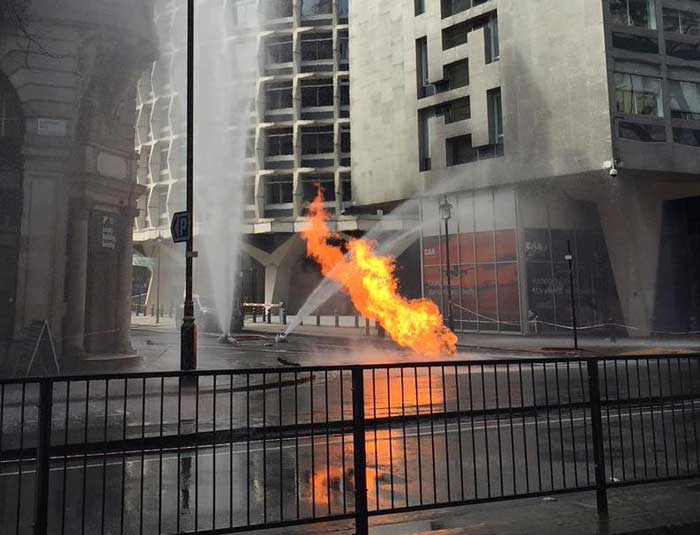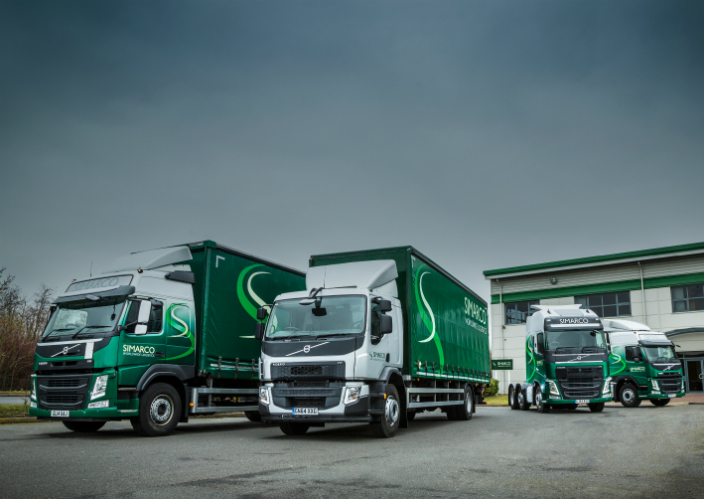Fire in Holborn: how LCR maintained business continuity with cloud services

When an electrical fire left government-owned London & Continental Railways (LCR) without access to their HQ for three weeks, there was great potential for disruption to their business continuity. However, because LCR use cloud services – hosted desktop, Office 365 and business VoIP telephony – they were back to business as usual by lunchtime the following day.
Fire causes power outage and business downtime
Shortly after 12.30pm on 1st April 2015, an underground electrical fire caused a mass power outage in the Holborn and Covent Garden areas of London. According to the BBC and UK Power Networks, 5,000 people were evacuated as 3,000 properties – mainly businesses – were left without power or internet connectivity. The fire ruptured a gas main, which added further to the intensity of the fire. Shows were cancelled and restaurants closed. It took London Fire Brigade 36 hours to put out the fire.
The cost of downtime during a disaster can devastate a business. Richard Beddoe, Westminster City Council’s cabinet member for city management, said the fire had a “massive impact” on local businesses.
Businesses evacuated and network connectivity destroyed
As with all the other businesses at One Kemble Street, LCR staff were evacuated. Worse still, days after the initial incident, once the gas supply had been shut down and the fire extinguished, the building remained without power. All network connectivity and telephone lines had been completely destroyed – with carriers such as BT and Virgin Media having to reinstall hundreds of metres of cabling. Even after power was restored, data connectivity remained down for a further ten days. In total, businesses lost access to One Kemble Street for three weeks.
But there was good news for LCR.
Cloud services quickly supported LCR’s disaster recovery
Unlike most other businesses, the impact of the disaster on LCR was minimal. Their decision two years earlier to move their day-to-day business functionality to the cloud meant they continued to operate almost as normal.
Remote working in a disaster with hosted desktop, business VoIP and Office 365
Employees were able to work remotely, accessing their hosted desktops and Office 365 online. Their VoIP numbers were forwarded to their landline or mobile of choice. The only limitations in their working environment lay in the hard copy architectural blueprints that remained in the office. Everything else was business as usual. They were easily able to communicate with their network of remote staff across the UK, with their partners and suppliers.
After three weeks, LCR was finally allowed full access to the building.
Cloud services: for a secure, flexible and sustainable business
John de-Pulford, LCR’s IT manager, has worked in association with Cloud Direct since 2011. His drive to move the business to the cloud was based upon his insight into producing a secure, flexible, cost-effective and sustainable way of working
IT systems based on business continuity
John said: “Business continuity is the principle platform on which all IT systems should be structured. LCR’s immediate response to the Holborn fire was based on the fact that, by invoking the company disaster plan, we were immediately able to redeploy staff to alternative locations whilst consequently retaining a core of essential workers at the Kemble Street location using 4G wireless to access our Cloud Direct hosted desktop facility.
“The decision to redeploy all non-essential HQ staff was taken by the emergency planning group on the late afternoon of the fire. By lunchtime of the following day it was business as usual for LCR. Cloud Direct engineers were available on call into the evening and from early the next morning to assist me in making sure that all redeployed personnel were comfortable and able to access their regular LCR IT services”.
Cloud Direct hosted desktop: for a productive business, even during a disaster
John concluded by saying: “Because of our decision to move to a Cloud Direct hosted desktop, LCR fared better than most businesses in the area both during and after the disaster – simply because our staff can be interactively productive anywhere utilising almost any operating system as long as they have access to an internet connection.”


